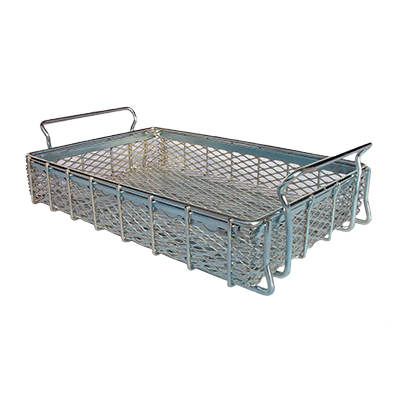In the pharmaceutical industry, maintaining strict hygiene and safety standards is paramount. From research laboratories to drug manufacturing facilities, every step of the pharmaceutical process demands meticulous attention to cleanliness. One often-overlooked aspect of pharmaceutical operations is material handling. Pharmaceutical baskets play a crucial role in ensuring the hygienic and safe transfer, storage, and processing of critical pharmaceutical components. In this blog post, we will delve into the world of pharmaceutical baskets and their significance in maintaining pharmaceutical material hygiene.
Understanding the Importance of Hygienic Material Handling
Pharmaceutical manufacturing involves handling a wide range of materials, including active pharmaceutical ingredients (APIs), excipients, and intermediates. Contaminants, such as dust, microbes, or foreign particles, can jeopardize the quality and safety of pharmaceutical products. For this reason, maintaining hygienic material handling practices is a non-negotiable requirement. Here’s why it matters:
- Product Quality: Contaminants can lead to impurities in pharmaceutical products, compromising their efficacy and safety. Hygienic material handling is essential to meet the highest quality standards.
- Regulatory Compliance: Regulatory bodies like the FDA and EMA enforce stringent hygiene and safety regulations in pharmaceutical manufacturing. Non-compliance can result in severe consequences.
- Patient Safety: Ultimately, the goal of pharmaceutical manufacturing is to produce safe medications for patients. Any compromise in material hygiene can pose risks to patient health.
- Efficiency: Properly designed and maintained pharmaceutical baskets can enhance workflow efficiency by ensuring that materials are transferred and stored without contamination or damage.
The Role of Pharmaceutical Baskets
Pharmaceutical baskets are specialized containers designed to meet the specific needs of the pharmaceutical industry. They play several key roles in ensuring hygienic material handling:
- Containment: Pharma baskets are constructed from materials like stainless steel, known for its resistance to corrosion and contamination. This containment prevents the transfer of contaminants to pharmaceutical materials.
- Sterilization: Many pharma baskets are designed for easy sterilization, making them suitable for cleanroom environments. Autoclaving and other sterilization methods are commonly used.
- Customization: Each pharmaceutical facility may have unique requirements for material handling. Custom-designed baskets ensure a perfect fit for the materials being handled, reducing the risk of contamination.
- Traceability: Some pharma baskets are equipped with tracking systems that allow for traceability of materials throughout the production process. This is crucial for quality control and compliance.
Types of Pharmaceutical Baskets
Pharmaceutical baskets come in various types, each designed for specific applications:
- Storage Baskets: These baskets are used for the safe storage of pharmaceutical materials, preventing contamination and ensuring product integrity.
- Washing Baskets: Designed for use in cleaning and sterilization processes, washing baskets allow for thorough cleaning and drying of pharmaceutical components.
- Transport Baskets: Used for the safe and contamination-free transport of materials within the facility, these baskets are equipped with secure closures to prevent spillage.
- Custom Solutions: Many pharmaceutical facilities require custom-designed baskets to meet unique material handling needs. Customization ensures a precise fit and optimal hygiene.
Pharma Baskets
In the world of pharmaceutical manufacturing, every detail counts. Hygienic material handling, often facilitated by pharmaceutical baskets, is a critical component of ensuring product quality, regulatory compliance, and patient safety. Pharmaceutical companies must invest in the right equipment and practices to maintain the highest standards of hygiene throughout the production process. Pharmaceutical baskets, with their durability, resistance to contamination, and customization options, stand as essential tools in achieving these goals. By prioritizing hygienic material handling, pharmaceutical manufacturers can continue to deliver safe and effective medications to patients around the world.



